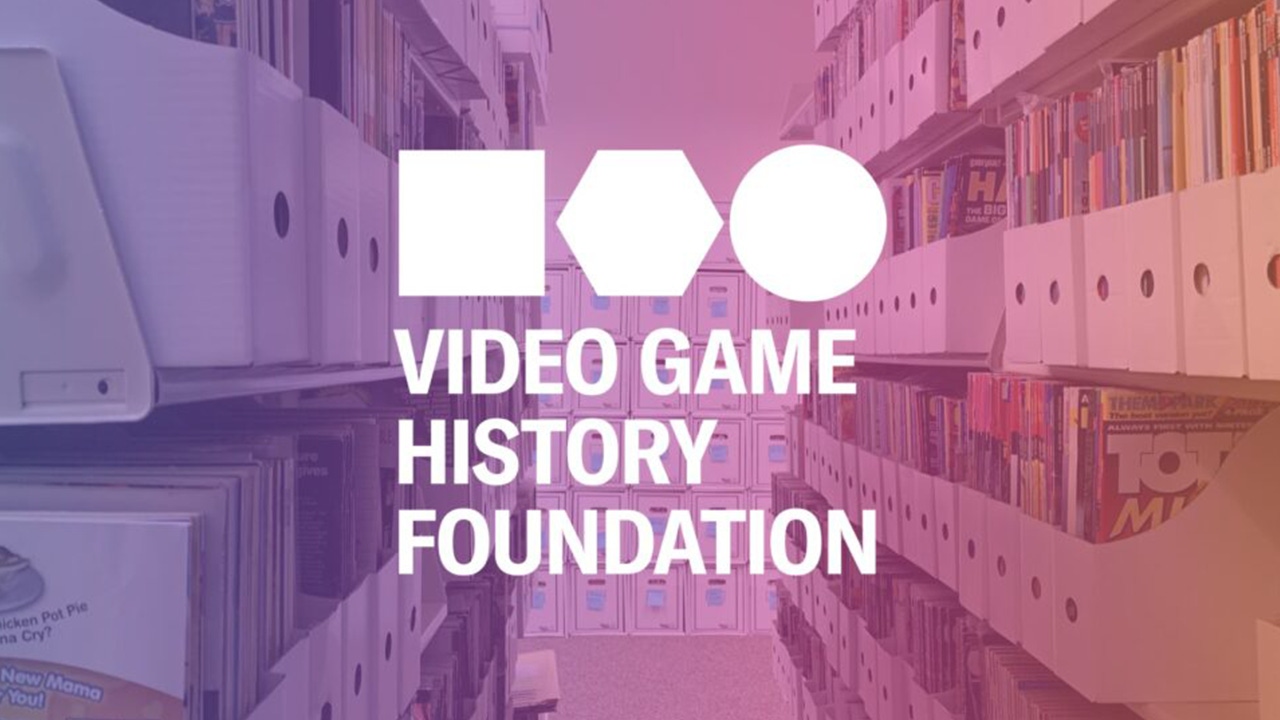Trending
Opinion: How will Project 2025 impact game developers?
The Heritage Foundation's manifesto for the possible next administration could do great harm to many, including large portions of the game development community.
'You need to be the curator of your own story.'

How can developers, publishers, advocates, institutions, and basically anyone with an interest in preserving, cataloguing, and presenting video game history in a way that's accessible help the cause?
For starters, you might consider handing the Video Game History Foundation (VGHF), the non-profit dedicated to precisely that, massive "cartoon sacks of money." You know, like the ones Scrooge McDuck uses to deposit his pocket change.
But what if you aren't hoarding burlap repositories adorned with dollar signs? VGHF co-founder Frank Cifaldi, who spoke to Game Developer last week following the launch of the VGHF's astounding digital library, says there are other (slightly more inexpensive) ways you can help.
"Honestly, something that we often say is, if you are within a studio structure, we need more internal champions–for not only live preservation of that material, but also advocacy for access," says Cifaldi.
Over the years, VGHF has acquired an eye-watering amount of material ripe for cataloguing. Those donations often come from smaller companies or individual collectors, largely because they're less restricted by corporate red tape and legal concerns.
Courting titans of the industry like Nintendo, Microsoft, and Sony remains an uphill battle. That's why it's vital people who feel strongly about documenting video game history (especially those within sprawling studio structures) find the strength to become vocal advocates.
"We've been pushing forward invisibly behind the scenes and have started to dismantle some of the barriers around access to this material being scary," continues Cifaldi. "We have always been a fairly secretive industry, right? We're terrified of competitors knowing the secret sauce that went into a game, and we're terrified of the public actually knowing how that stuff actually gets made."
Cifaldi hopes that mindset will shift when people see the positive impact that comes from initiatives like the VGHF Library, which includes materials such as artwork, press kits, design documents, video game magazines, production footage, and so much more. All text searchable, of course–which was another herculean challenge in itself.
It's a sentiment echoed by VGHF director Phil Salvador, who explains the benefits of cracking the safe on decades of video game history can be far-reaching–as evidenced by the Foundation's collaboration with Myst developer Cyan.
"The Cyan collection is a great example, because since we've opened up the collection the Myst community have been poring over it. They've even started identifying people in videos who maybe have never been credited in some of their games before," continues Salvador.
"It's having a positive effect, going back to the company itself. We hope this is a good case study for other companies to say 'listen, if you open these things up, it's not going to jeopardise you.' There is genuine interest in this stuff, and you can enable that."
Even if you convinced a handful of people at larger companies there's scant risk involved in showcasing their history to the world, you'd probably still need approval from legal. That, explains Cifaldi, is often a critical stumbling block.
"Let's just say theoretically one of these companies–Ubisoft or EA–has a box of dusty old design documents they found," says Cifaldi. "You'd think that's an easy donation. Just send it over. There's nothing crazy in here. There's nothing incriminating. But from that company's perspective they have to think about things like 'do we actually legally own all of these?' or 'are we even allowed to own some of these things?'. 'Maybe we were supposed to have destroyed some of these and maybe there are third-parties we were contracted with that might sue us if we claimed to own this and then donate it?'
"The answer almost every time is 'no, it's fine,' but for a larger company that has a lot to lose it's a really difficult proposition to just hand things over. I think corporate structure makes it mandatory that legal has to sign off on that–and the cost of legal signing off on anything is often absurd."
If corporations are always going to be risk-averse, how do you flip the narrative? You hope there are key figures (shout out to any executives reading this) within those structures who believe in the cause. People with the power and motivation to bulldoze through the bureaucracy–or former leaders and developers who are perhaps unknowingly sat on a treasure trove of material just waiting to be donated.
"The truth behind almost any instance of historical preservation is that people just took stuff home–and maybe they weren't supposed to" says Cifaldi. "You know, I'll call back to my little speech at last year's Game Developer's Choice Awards and IGF and say nobody is going to preserve you, but you.
"If there's a message to Game Developer's readers, I think that's it. You need to be the curator of your own story–but especially if you're within a larger corporate structure because nobody is going to do that for you. Someone like us can be the ultimate caretakers of that story, but you have to curate that yourself."
You May Also Like